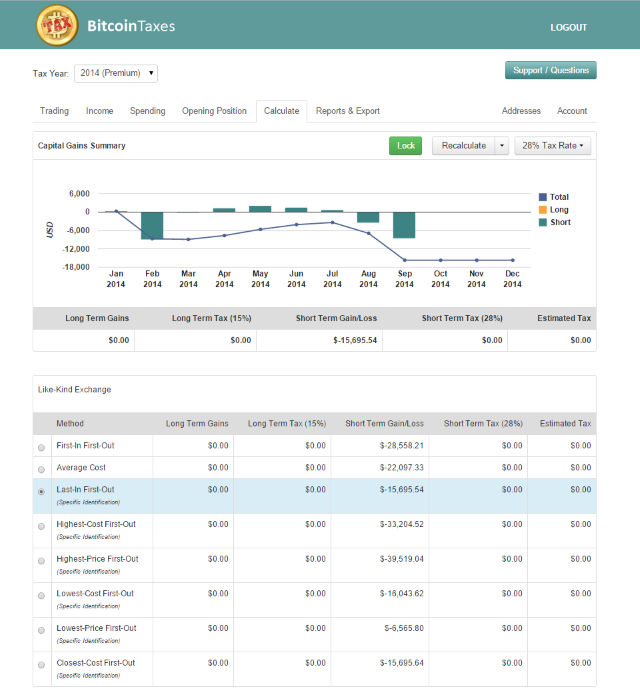

Trading bitcoin tax - sorry, that
Long time: Trading bitcoin tax
| Como conseguir bitcoins 2018 | |
| HASH 160 TO ADDRESS BITCOIN | |
| Bitcoin cash koinim | |
| Trading bitcoin tax | 936 |
Can the taxman identify owners of cryptocurrencies?
Capital gains obtained through transactions using Bitcoin and other cryptocurrencies gradually become subject to taxation in more and more countries all over the world. Taxable persons in those countries are required to declare transactions with cryptocurrencies in their annual tax returns. A failure to do so may result in heavy sanctions. However, can the taxman effectively identify owners of cryptocurrencies and make them pay applicable taxes?
The problem of anonymity
The major concern related to the taxation of virtual currencies is the difficulty to trace them because they are mined, used, and traded online completely anonymously. In addition, the use of supplemental anonymization techniques, such as Virtual Private Networks (VPN) and coin mixing services, protects owners’ identities and makes it nearly impossible to trace their transactions.
Addressing the issue
In order to address the issue of anonymity of cryptocurrencies, some countries have already taken measures allowing them to identify owners of cryptocurrencies. Below, we discuss the measures adopted by China.
China is the country in which most of the global Bitcoin transactions take place (95% of the global trading volume in 2017). In order to reduce the number of unlawful Bitcoin transactions, the Chinese government has recently introduced regulations obliging local Bitcoin traders and exchanges to comply with the new Chinese central bank’s regulatory policy that requires KYC (Know Your Customer) verification of bank accounts. As a result, users of Bitcoin exchanges are formally required to submit certain information related to their Bitcoin transactions, such as account information, login details, clarification of the sources of the funds, and transaction history. By imposing such requirements, the Chinese government aims to receive more information about the persons who exchange Bitcoin and other cryptocurrencies, determine the sources of Bitcoin capital, and prevent risks of illegitimate acts using virtual money.
Tracking Internet traffic
However, not all countries have implemented comprehensive policies and strategies on how to (i) make traders of cryptocurrencies to comply with their tax obligations and (ii) prevent money laundering conducted with assistance of virtual currencies. In most countries, persons willing to declare their Bitcoin-related operations have to voluntarily report the income received from trading Bitcoin in their annual tax returns (e.g., U.S. taxpayers are required to report their Bitcoin transactions and keep their records). However, up until now, the level of reporting is relatively low. By way of illustration, for the tax year 2015, only 802 individuals reported their cryptocurrency transactions to the US tax agency.
Another way (apart from voluntary reporting) that allows government institutions to identify parties to cryptocurrency transactions is intercepting users’ Internet traffic, especially when Bitcoin users:
- Mention their names and Bitcoin address online;
- Trade Bitcoin on exchanges for regular currencies. Since trading on an exchange usually requires identity verification (e.g., a national ID or bank statements), the transactions conducted through such exchanges can be used for tracking all incoming and outgoing Bitcoin traffic;
- Pay with Bitcoin. Purchasing goods and services online usually requires submitting contact details, such as a delivery address (except for digitally delivered goods). Thus, the recipient of such purchases can be identified by the tax authorities; and
- Use certain types of Bitcoin wallets that do not mask users’ IP addresses.
Conclusion
In conclusion, the anonymity of cryptocurrencies raises a plethora of tax enforcement issues. However, more and more governments adopt measures aiming to address those issues. Following the above-mentioned regulations adopted by the Chinese government, the European Parliament and the Council of the European Union published in 2017 a proposal that aims to identify owners of cryptocurrencies. The proposal clearly states that “competent authorities should be able to monitor the use of virtual currencies” and points out that the anonymity of virtual currencies is rather a hindrance than an asset.
Ask Us Anything
If you want a legal creative sharp tax advice, if you have a remark, an idea… if you want to check a loophole, or you want a second opinion, a company… a bank account or you just want to chat…

0 thoughts on “Trading bitcoin tax”